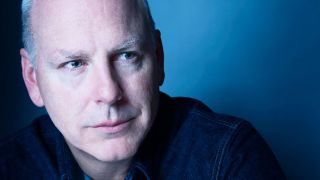Los Angeles punk royalty Greg Graffin has taken time out from his day job in Bad Religion to record his third solo album, Millport, which embraces American folk and old-time country, and on which he’s backed by members of Bad Religion and Social Distortion. Inspired by the artists that have influenced him throughout his career, Millport is a reflective journey through Americana through the eyes of this punk, teacher and author. And with it, Graffin is back to prove he’s more than an old crusty.
What drew you away from punk to folk music?
I was fifteen years old when Bad Religion started. I was a kid and looking for a social scene. When talking about a musician and songwriter, there’s more to it than the social scene that they belong to. For me, music was always a part of my family. My mother’s side were churchgoers and they sang from a very young age. The music they passed along to me and introduced me to were songs played on acoustic guitars with spiritual and gospel vibes. I was introduced to my uncle’s seventy-eights collection. His hero that turned into my hero was Doc Watson, and he exemplifies the old-time genre.
There’s more than one place called Millport in the US. Which one is it?
I wanted it to be something that was timeless, something that’s geographically hard to place yet it feels like you’ve been there. And that’s my philosophy of good music. The store front on the cover is from Millport, New York. We see images of that all over America. And you realise they’ve outlived their usefulness, but they’re still exquisite – they’re not dilapidated, they’re just not being used, and that provokes reflection.
Country music has a reputation for being quite conservative.
This music can be seen as patriotic, but the guys that wrote this music originally were guys like Woody Guthrie and Bob Dylan, people wandering around the country with nothing but a guitar, channelling what they experienced through songs. I consider that patriotic. But is it small-minded? No, it’s not. We’re talking about some of the most liberal-minded people in American history. That’s a tradition that is anything but flag-waving. The people were experiencing a hard time and reflecting it in their songs.
As a liberal-minded man yourself, how do you see the US right now?
I’m old now. I tend not to react as quickly as the younger people. I remember what it was like when Reagan took office, I remember what it was like when George W took office. This may be ramping that up a little bit, but we made it through those years and the conservative force in America is not going away. Every time we’re reminded of it, it’s very disheartening.
What drew you to teaching?
Academics always interested me. I think pursuing music and academia hand-in-hand is a great privilege. A philosophical science like evolution can bring a lot into focus about yourself. Most people who learn about this stuff go on to share it in some capacity. The routine was very familiar to me because it wasn’t that different to getting up on stage and singing a punk concert. And sharing these philosophical tidbits with students who are eager to learn really felt similar to singing in Bad Religion.
Bad Religion man gives Bring Me The Horizon a dressing down


